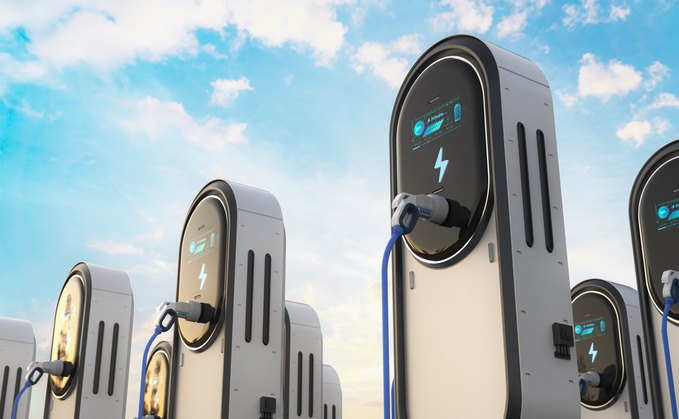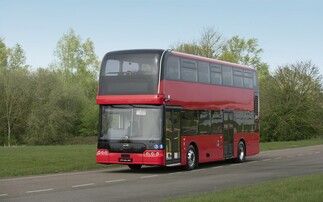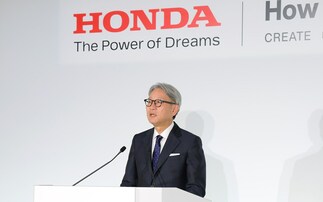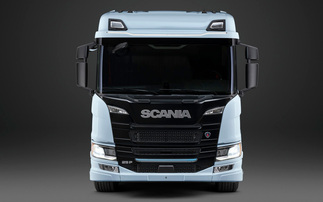Credit: iStock
UK requires 'major acceleration' of public EV charger rollout to meet government target of 300,000 by 2030, according to Cornwall Insight
The UK needs to more than double the rate at which it is rolling out publicly accessible charge-points for electric vehicles (EVs) if it is to meet a target of installing 300,000 by the end of the decade, according to Cornwall Insight.
Data analysed for the influential energy consultancy's latest Electric Vehicle Country Attractiveness (EVCA) Index - a quarterly ranking charting the attractiveness of European nations for investment in EVs - found that as of the end of March 2024 the UK had more than 75,000 publicly accessible charge-points in operation, leaving the nation roughly 225,000 short of its 2030 target.
However, over the past year the UK has only installed just over 16,000 new charge points, a rate of just over 1,300 additions a month which if maintained would see the UK fall short of its target by almost 120,000 units, Cornwall Insight calculated. As such, the consultancy claims the UK needs to accelerate the number of installations to 2,800 a month to stay on track to meet its target.
Encouragingly, however, separate research published recently by charging app Zapmap suggested EV chargepoint installation rates may be on the rise, given more than 5,500 charge points were rolled out in the first quarter of the year, marking an installation rate of over 1,900 per month - although this still falls far short of the required pace.
"The UK's sluggish pace in rolling out EV charging infrastructure poses a significant threat to our transition away from petrol and diesel cars, and towards a greener and cleaner transportation system," Jamie Maule, research analyst at Cornwall Insight, said.
"To achieve our EV targets, it is essential that we see a major acceleration in charge-point installations. Without this increase, we risk undermining the progress towards decarbonising the UK's roads and we could see a delay to broader environmental goals."
Cornwall Insight's latest EVCA Index, ultimately ranked the UK ninth in Europe for EV attractiveness, trailing Norway, France, Belgium, Denmark, Spain, Austria, Sweden, and the Netherlands, which took pole position in the consultancy's list.
Maule added that fear around a lack of charge-points compounded by delays to programmes such as the Rapid Charging Fund, which was postponed from 2022 until in December 2023, was a major reason behind hesitation to switch from traditional vehicles to EVs.
"Whatever the outcome of the general election, the next government must make the expansion of charging infrastructure central to its EV policy if genuine decarbonisation of our transport system is to be achieved," he added.
"This includes ensuring that existing policy schemes – such as the Rapid Charging Fund – are implemented swiftly and efficiently and barriers in the planning and grid connections process are removed."
Cornwall Insight's analysis comes just days after the trade body for the EV charging industry published a 12-point manifesto following Prime Minister Rishi Sunak's surprise decision to call a General Election for 4 July.
Split into three key areas, Our Electric Future: ChargeUK's manifesto for the next government detailed a dozen measures to accelerate the roll out of charging infrastructure and ensure drivers have access to convenient and affordable charging.
Moreover, in further related news, luxury car manufacturer JLR today revealed it has trained more than 20,000 staff members and partners in electrification and digital skills to support its EV development and manufacturing in the UK and beyond.
The firm said it had equipped more than 2,400 manufacturing employees with EV skills, trained almost 3,000 engineers in electrification, and around 2,500 in data and digital skills – with more than 4,200 JLR and retail partner apprentices and early careers employees currently in training.
Electrification training for over 11,000 JLR manufacturing colleagues is also currently underway, with a further 950 new electrification roles in engineering to be opened during the current financial year.
"Our plans to electrify our ultra desirable modern luxury brands are unfolding at speed and I'm delighted with the pace that our Future Skills Programme is readying our talented workforce," said Barbara Bergmeier, JLR executive director of industrial operations.
Keep up to date with all the latest green business news by signing up to the free Daily and Weekly BusinessGreen Newsletters










